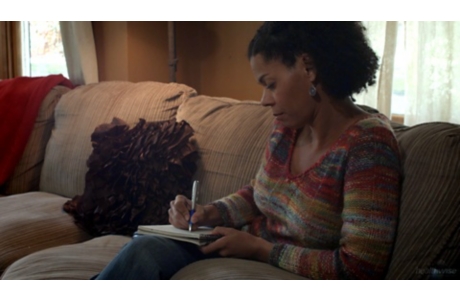Counseling for PTSD
Overview
When you have post-traumatic stress disorder (PTSD), dealing with the past can be hard. Instead of telling others how you feel, you may keep your feelings bottled up. But talking with a therapist can help you get better.
Cognitive-behavioral therapy (CBT) is one type of counseling. It appears to be an effective type of counseling for PTSD. In CBT, a therapist helps you deal with your feelings about the past. You'll have weekly hour-long visits for a few weeks or months or as long as it takes for you to feel better. CBT may help you have fewer PTSD symptoms over time.
There are many types of CBT for PTSD. Examples include cognitive therapy, prolonged exposure therapy, and cognitive processing therapy.
What is cognitive therapy?
After a traumatic event, you might blame yourself for things you couldn't have changed. For example, a soldier may feel guilty about decisions he or she had to make during war. Cognitive therapy helps you understand that the traumatic event you lived through was not your fault.
In cognitive therapy, your therapist helps you understand and change how you think about your trauma and its aftermath. Your goal is to understand how certain thoughts about your trauma cause you stress and make your symptoms worse.
You will learn to identify thoughts about the world and yourself that are making you feel afraid or upset. With the help of your therapist, you will learn to replace these thoughts with more accurate and less distressing thoughts. You also learn ways to cope with feelings such as anger, guilt, and fear.
What is prolonged exposure therapy?
In prolonged exposure therapy, your goal is to have less fear about your memories. It is based on the idea that people learn to fear thoughts, feelings, and situations that remind them of a past traumatic event.
By talking about your trauma repeatedly with a therapist, you'll learn to get control of your thoughts and feelings about the trauma. This is because each time you talk about the past, you become less scared and sensitive to the memories. This may be hard at first. It might seem strange to think about stressful things on purpose.
But you'll feel less overwhelmed over time. With the help of your therapist, you can change how you react to the stressful memories. Talking in a place where you feel secure makes this easier.
You also may practice different ways to relax when you're having a stressful memory. Breathing exercises are sometimes used for this.
What is cognitive processing therapy?
A traumatic experience can change the way you see the world or the way you think about yourself. In cognitive processing therapy (CPT), your therapist will help you change thought patterns connected to your trauma. CPT involves cognitive therapy and writing exercises.
You may do CPT with just your therapist or as part of a group. Your therapist will ask you to write about the traumatic event, such as why you think it happened and the way it has affected your thinking. You will share your writing in your therapy sessions.
Through your CPT sessions, you will learn how thoughts and emotions are connected. Your therapist will help you identify automatic thoughts that may be contributing to your PTSD, and help you gain skills to shift these ways of thinking. Once you gain these skills, you will be able to use them to help reduce PTSD symptoms even after your CPT therapy has ended.
For more information, see the topic Post-Traumatic Stress Disorder.
Credits
Current as of: June 24, 2023
Author: Healthwise Staff
Clinical Review Board
All Healthwise education is reviewed by a team that includes physicians, nurses, advanced practitioners, registered dieticians, and other healthcare professionals.
Current as of: June 24, 2023
Author: Healthwise Staff
Clinical Review Board
All Healthwise education is reviewed by a team that includes physicians, nurses, advanced practitioners, registered dieticians, and other healthcare professionals.







